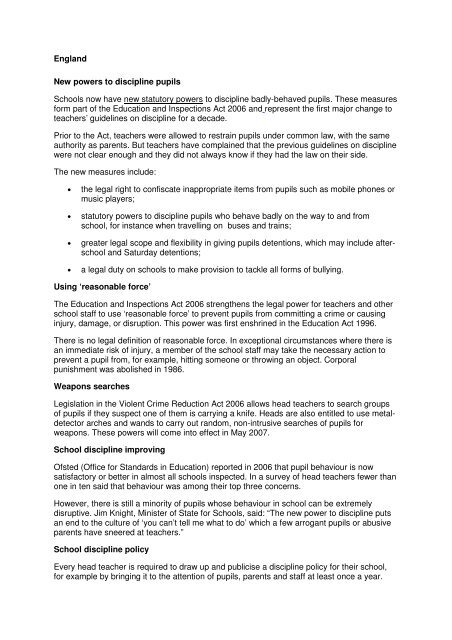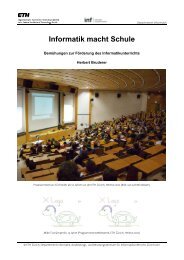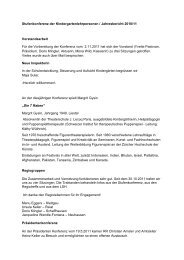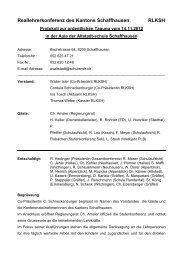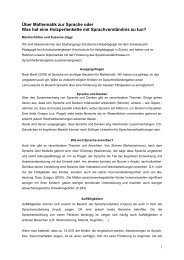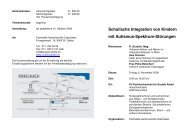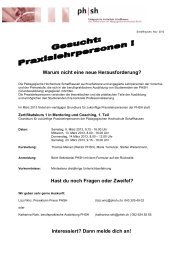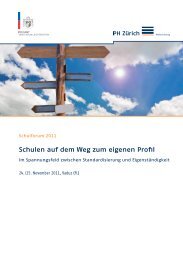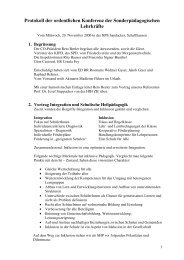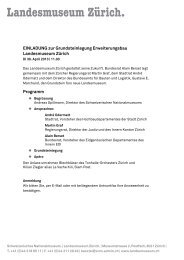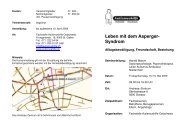England New powers to discipline pupils Schools now have new ...
England New powers to discipline pupils Schools now have new ...
England New powers to discipline pupils Schools now have new ...
Create successful ePaper yourself
Turn your PDF publications into a flip-book with our unique Google optimized e-Paper software.
<strong>England</strong><br />
<strong>New</strong> <strong>powers</strong> <strong>to</strong> <strong>discipline</strong> <strong>pupils</strong><br />
<strong>Schools</strong> <strong>now</strong> <strong>have</strong> <strong>new</strong> statu<strong>to</strong>ry <strong>powers</strong> <strong>to</strong> <strong>discipline</strong> badly-be<strong>have</strong>d <strong>pupils</strong>. These measures<br />
form part of the Education and Inspections Act 2006 and represent the first major change <strong>to</strong><br />
teachers’ guidelines on <strong>discipline</strong> for a decade.<br />
Prior <strong>to</strong> the Act, teachers were allowed <strong>to</strong> restrain <strong>pupils</strong> under common law, with the same<br />
authority as parents. But teachers <strong>have</strong> complained that the previous guidelines on <strong>discipline</strong><br />
were not clear enough and they did not always k<strong>now</strong> if they had the law on their side.<br />
The <strong>new</strong> measures include:<br />
• the legal right <strong>to</strong> confiscate inappropriate items from <strong>pupils</strong> such as mobile phones or<br />
music players;<br />
• statu<strong>to</strong>ry <strong>powers</strong> <strong>to</strong> <strong>discipline</strong> <strong>pupils</strong> who be<strong>have</strong> badly on the way <strong>to</strong> and from<br />
school, for instance when travelling on buses and trains;<br />
• greater legal scope and flexibility in giving <strong>pupils</strong> detentions, which may include afterschool<br />
and Saturday detentions;<br />
• a legal duty on schools <strong>to</strong> make provision <strong>to</strong> tackle all forms of bullying.<br />
Using ‘reasonable force’<br />
The Education and Inspections Act 2006 strengthens the legal power for teachers and other<br />
school staff <strong>to</strong> use ‘reasonable force’ <strong>to</strong> prevent <strong>pupils</strong> from committing a crime or causing<br />
injury, damage, or disruption. This power was first enshrined in the Education Act 1996.<br />
There is no legal definition of reasonable force. In exceptional circumstances where there is<br />
an immediate risk of injury, a member of the school staff may take the necessary action <strong>to</strong><br />
prevent a pupil from, for example, hitting someone or throwing an object. Corporal<br />
punishment was abolished in 1986.<br />
Weapons searches<br />
Legislation in the Violent Crime Reduction Act 2006 allows head teachers <strong>to</strong> search groups<br />
of <strong>pupils</strong> if they suspect one of them is carrying a knife. Heads are also entitled <strong>to</strong> use metaldetec<strong>to</strong>r<br />
arches and wands <strong>to</strong> carry out random, non-intrusive searches of <strong>pupils</strong> for<br />
weapons. These <strong>powers</strong> will come in<strong>to</strong> effect in May 2007.<br />
School <strong>discipline</strong> improving<br />
Ofsted (Office for Standards in Education) reported in 2006 that pupil behaviour is <strong>now</strong><br />
satisfac<strong>to</strong>ry or better in almost all schools inspected. In a survey of head teachers fewer than<br />
one in ten said that behaviour was among their <strong>to</strong>p three concerns.<br />
However, there is still a minority of <strong>pupils</strong> whose behaviour in school can be extremely<br />
disruptive. Jim Knight, Minister of State for <strong>Schools</strong>, said: “The <strong>new</strong> power <strong>to</strong> <strong>discipline</strong> puts<br />
an end <strong>to</strong> the culture of ‘you can’t tell me what <strong>to</strong> do’ which a few arrogant <strong>pupils</strong> or abusive<br />
parents <strong>have</strong> sneered at teachers.”<br />
School <strong>discipline</strong> policy<br />
Every head teacher is required <strong>to</strong> draw up and publicise a <strong>discipline</strong> policy for their school,<br />
for example by bringing it <strong>to</strong> the attention of <strong>pupils</strong>, parents and staff at least once a year.
Essential elements of this policy are strategies <strong>to</strong> tackle bullying, racial and sexual<br />
harassment and the school’s policy on detention. It is reviewed during inspections and<br />
should:<br />
• promote self-<strong>discipline</strong> and proper regard for authority among <strong>pupils</strong>;<br />
• encourage good behaviour and respect for others;<br />
• ensure <strong>pupils</strong>’ standard of behaviour is acceptable;<br />
• regulate students’ conduct.<br />
Between 2002 and 2006, around 400 secondary and 1500 primary schools across the<br />
country <strong>to</strong>ok part in a Behaviour Improvement Programme run by the Department for<br />
Education and Skills targeting resources at schools with the greatest behaviour and<br />
attendance problems.<br />
Working with parents<br />
Effective partnership between schools and parents is key <strong>to</strong> good <strong>discipline</strong>. Ofsted (Office<br />
for Standards in Education) commented in a report published in February 2005 that: “A<br />
strong sense of community and positive engagement with parents are features of schools<br />
where behaviour is good.”<br />
The Education and Inspections Act 2006 seeks <strong>to</strong> strengthen partnerships between schools<br />
and parents. <strong>New</strong> measures, which come in<strong>to</strong> force in September 2007, include:<br />
• using parenting contracts <strong>to</strong> ensure parents tackle problem behaviour before a child<br />
reaches the point of being excluded from school;<br />
• making parents take responsibility for their children in the first five days of exclusion<br />
through a <strong>new</strong> offence of failing <strong>to</strong> ensure their child is not found in a public place<br />
without reasonable justification;<br />
• ensuring education provision is made for all excluded <strong>pupils</strong> from day six of their<br />
exclusion, rather than from day 16 as at present.<br />
<strong>Schools</strong> partnerships<br />
By September 2007 all secondary schools are expected <strong>to</strong> work <strong>to</strong>gether <strong>to</strong> improve<br />
behaviour and persistent truancy, <strong>to</strong> share expertise and make better use of the national<br />
support available.<br />
Local authorities are expected <strong>to</strong> devolve funding for this purpose, for example by<br />
commissioning support and provision for <strong>pupils</strong> at risk of exclusion, persistent truants and<br />
excluded <strong>pupils</strong>.


